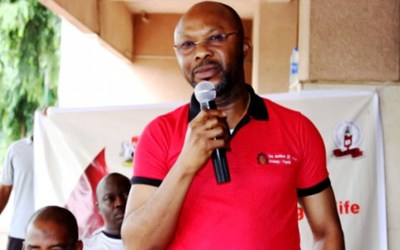He said: "Some work is already going on so that this goal can be attained on this laudable initiative and make it faster and in a more cost efficient manner. The collaborative nature of it is something that the ministry applauds and we are happy about it will continue to support it. "There are some key areas like the area of policy and standards and the implementation like how do you store health data because we want to be sure like when somebody moves from area to the other how are we are we going to ensure that the data that is kept is easily transferable and readable. The unique identification of healthcare organizations these are the issues that ICT is generally geared towards solving."
Speaking along the same direction with Olaopa, the DG, NITDA, Mr. Peter Jack, said: "So we have decided to synchronise all our efforts and now we are talking about a multi-stakeholder partnership strategy where all the stakeholders are involved for a preparatory technical meeting towards the meeting in 2016 at the global national e-Health Summit. The idea is to begin to develop standards guidelines for interconnectivity of all the health information system across the country so that we have an integrated national health system in the country." In order not to breach the privacy of individuals, he said, there are critical information of individuals that needed to be shared because, doctors cannot treat people if they don’t have such information and naturally within the FoI Act, the IT regulator will be able to decide within the framework of the health information exchange as each hospital will decide the approvals of their patients and at what levels of information that will be shared.
He said: "All the stakeholders will agree that there are some vital information that have to do with allergies with some drugs or conditions that if you are treated with the wrong medication will lead to disaster so those basic information that is necessary for doctors to do their work correctly have to be shared. "We are going to enable the environment in such a way that solution providers will be encouraged to provide needed solutions, as you know in this day of the cloud environment you don’t need to invest heavily on infrastructure as there are a lot of solution providers who provides solution in the clouds and so we are looking to encourage such investments and this will involve multi-stakeholders strategy involving the solutions providers and the citizens who are the ultimate users."
Also in a remark, the Acting Executive Secretary, National Health Insurance Scheme (NHIS), Mr. Femi Akingbade, who was represented by Mr. Kenneth Okereafor, an Assistant General Manager with the agency, said the framework if wisely used and applied would be a strategic tool for improving access, expanding coverage and increasing the financial efficiency of health care system, adding that ICTs are already revolutionising access to quality comprehensive care and thus bridging many difficulties to resolve health issues.
Source:This day online

 As part of government’s efforts towards a Universal Health Coverage (UHC) for all by 2020, the Federal Ministries of Health and Communication Technology, on Monday commenced the process of meeting the health needs of 90 million Nigerians, using a new national electronic-health framework. The digital framework, THISDAY learnt will be implemented in synergy with the United Nations Foundation (UNF), the Save-One-Million-Lives-Initiative (SOMLI), is part of a prepatory meeting towards an all-inclusive African Health Summit slated for 2016. Speaking at the technical meeting, in Abuja, the Permanent Secretary, of the Ministry of Communication Technology, Dr. Tunji Olaopa, who was represented by Tope Fadeshemi, a Director in the Ministry, said government through the National Information Technology Development Agency (NITDA), has developed an e-governance based master plan that would help in speeding up progress on the provision of e-health solutions for Nigerians.
As part of government’s efforts towards a Universal Health Coverage (UHC) for all by 2020, the Federal Ministries of Health and Communication Technology, on Monday commenced the process of meeting the health needs of 90 million Nigerians, using a new national electronic-health framework. The digital framework, THISDAY learnt will be implemented in synergy with the United Nations Foundation (UNF), the Save-One-Million-Lives-Initiative (SOMLI), is part of a prepatory meeting towards an all-inclusive African Health Summit slated for 2016. Speaking at the technical meeting, in Abuja, the Permanent Secretary, of the Ministry of Communication Technology, Dr. Tunji Olaopa, who was represented by Tope Fadeshemi, a Director in the Ministry, said government through the National Information Technology Development Agency (NITDA), has developed an e-governance based master plan that would help in speeding up progress on the provision of e-health solutions for Nigerians. 




